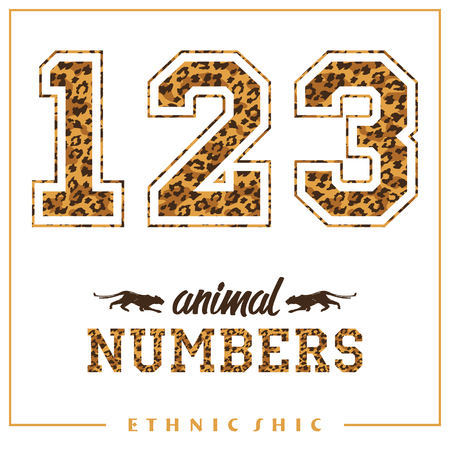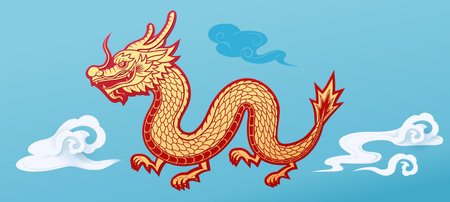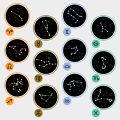Introduction: The Growing Popularity of the Chinese Zodiac in America
In recent years, the Chinese Zodiac has woven its way into the fabric of American pop culture, appearing everywhere from trendy restaurant placemats to viral social media quizzes. This ancient tradition, rooted in centuries-old Chinese philosophy and astrology, has captivated the American imagination with its colorful animals and promises of destiny and insight. As Americans seek meaning and connection in a fast-paced world, many have turned to the Zodiac for guidance, self-reflection, and even a little bit of fun. However, as this cultural phenomenon gains traction stateside, misunderstandings and myths about what the Chinese Zodiac truly represents have also multiplied. It’s more than just a quirky horoscope or a party conversation starter—its a deeply symbolic system that deserves respect and accurate understanding. Clarifying these misconceptions is not only about honoring a rich heritage but also about ensuring that those drawn to its wisdom receive genuine insight rather than misleading stereotypes. By exploring the real meaning behind the signs and debunking common myths, we can foster deeper appreciation, cross-cultural respect, and more meaningful personal growth for all who are intrigued by the mysteries of fate.
Myth: The Chinese Zodiac is Just a ‘Fortune Cookie’ Gimmick
For many Americans, the Chinese Zodiac is often associated with the colorful paper placemats in local Chinese restaurants or the playful fortunes tucked inside crispy cookies. This lighthearted stereotype makes it easy to dismiss the Zodiac as nothing more than a quirky dinner-table amusement. However, this perspective overlooks the profound cultural and spiritual significance the Zodiac holds for millions of people across Asia and within Chinese-American communities.
Beyond Restaurant Novelties: Deep Roots in Culture
The Chinese Zodiac—known as “Sheng Xiao”—is not a marketing gimmick but an ancient system that dates back thousands of years. It forms the backbone of traditional calendars, shaping rituals, family customs, and even major life decisions. Each animal sign reflects layers of symbolism that influence identity, social interactions, and generational heritage.
Key Differences: Pop Culture vs. Tradition
| Pop Culture Stereotype | Traditional Meaning |
|---|---|
| Paper placemats & fortune cookies | Lunar calendar, guiding festivals & milestones |
| Random animal assignment | Birth year determines Zodiac sign and life path |
| Fun personality quizzes | Reflection on character, destiny, relationships |
| Temporary entertainment | Lifelong guidance for personal growth and community harmony |
Cultural Significance in Daily Life
The Zodiac shapes everything from New Year celebrations to wedding planning and business ventures. Families consult it for naming children, choosing auspicious dates, and understanding relationship compatibility. Far from being frivolous or superficial, the Chinese Zodiac offers a compassionate lens through which people seek healing, self-understanding, and connection with their ancestors.

3. Myth: Everyone Born in the Same Year Shares the Same Destiny
It’s a common belief in the U.S. that everyone sharing a Chinese zodiac sign—say, all people born in the Year of the Dragon—must have identical personalities and fates. While this idea is easy to grasp, it’s actually far from how the Chinese zodiac truly works.
The Overlooked Layers: Elements and Lunar Calendar
Many Americans aren’t aware that each animal sign is paired with one of five elements—Wood, Fire, Earth, Metal, or Water—that rotate every year. So, a Wood Dragon is quite different from a Fire Dragon. This elemental association adds a layer of complexity and individuality to each person’s zodiac profile, making destinies more nuanced than just the animal sign alone.
Lunar Calendar Nuances
Another often-missed detail is that the Chinese zodiac follows the lunar calendar, not January 1st. This means someone born in early January might actually belong to the previous year’s animal sign. These subtleties are crucial for accurate readings and highlight how much personalization goes into each person’s astrological chart.
A Personalized Journey
When you factor in the specific birth date, time, and even location, along with the interplay of animal signs and elements, each person’s journey becomes uniquely their own. The Chinese zodiac isn’t about lumping millions of people into one category; it’s about honoring individual paths and life lessons. By recognizing these layers, we can move beyond stereotypes and discover how destiny unfolds in deeply personal ways for each of us.
4. Myth: The Chinese Zodiac Is Exactly Like Western Astrology
It’s easy to assume the Chinese Zodiac and Western astrology are interchangeable—after all, both use animals or symbols and assign personality traits based on birth dates. However, this common misconception overlooks the unique philosophies and essential differences between these two beloved systems.
Philosophical Foundations
The Chinese Zodiac is rooted in ancient Chinese philosophy, especially concepts like yin and yang, the five elements (wood, fire, earth, metal, water), and a cycle that spans twelve years. Western astrology, meanwhile, is based on planetary positions at the time of birth and follows the zodiac calendar’s twelve sun signs over a single year. While both systems aim to offer insight into personalities and destinies, their frameworks and worldviews are fundamentally different.
Comparison Table: Core Differences
| Chinese Zodiac | Western Astrology | |
|---|---|---|
| System Basis | Lunar calendar; 12-year cycle; animals & elements | Solar calendar; yearly cycle; planets & constellations |
| Main Influences | Year of birth, animal sign, element (e.g., Fire Dragon) | Date & time of birth, sun sign (e.g., Taurus), rising sign, moon sign |
| Cultural Philosophy | Harmony with nature; interconnectedness; fate cycles | Individualism; personal destiny; psychological insight |
| Reading Methods | Annual predictions; compatibility based on animal signs & elements | Natal charts; daily/weekly/monthly horoscopes; aspect analysis |
| Main Use in America | Lunar New Year festivities; personality fun-facts; family traditions | Daily horoscopes; relationship advice; self-reflection tools |
A Distinctly Different Experience
If you’re hoping for a fortune cookie version of your Western horoscope, you might miss out on the beauty of how the Chinese Zodiac connects people to cycles of nature and family lineage. In contrast, Western astrology tends to focus more on individual growth and psychological archetypes. Embracing each system for its strengths allows us to honor diverse wisdom traditions without blending them into something they were never meant to be.
5. Myth: The Zodiac is Only About Animals
When most Americans think of the Chinese Zodiac, it’s easy to picture just the twelve iconic animals: Rat, Ox, Tiger, Rabbit, Dragon, Snake, Horse, Goat, Monkey, Rooster, Dog, and Pig. This surface-level understanding is common, but it misses the heart and soul of what the Zodiac truly represents in Chinese culture. Let’s peel back these layers and uncover a universe of meaning that goes far beyond animal symbolism.
The Elements: A Web of Interconnected Forces
Beneath every Zodiac sign lies an elemental force—Wood, Fire, Earth, Metal, or Water. These elements cycle through the years alongside the animals and shape personalities in subtle ways. For example, a Wood Rabbit and a Metal Rabbit are believed to have different strengths and life paths. This concept is deeply rooted in Chinese philosophy and highlights how destiny isn’t static; it evolves with shifting energies and cycles.
Legends Woven Through Time
The stories behind the Zodiac signs are rich with lessons about courage, wisdom, loyalty, and adaptability. Take the famous legend of the Jade Emperor’s race: Each animal’s placement in the Zodiac isn’t arbitrary—it reflects character traits and moral values admired in Chinese culture. The clever Rat winning first place by using wit instead of strength is more than just folklore; it’s a gentle nudge toward embracing our unique gifts.
Cultural Values Beyond Birth Years
In American pop culture, Zodiacs often become quirky conversation starters or party games. But for many families across Asia—and those who honor their heritage in America—Zodiac signs carry deep meaning. They influence wedding dates, business launches, and even how elders choose baby names. It’s not superstition; it’s about weaving intention into life’s milestones by aligning with nature’s rhythms and cultural wisdom passed down through generations.
So next time you see your animal sign on a restaurant placemat or social media meme, remember: the Chinese Zodiac is not just about which animal you are. It’s a beautiful tapestry of history, elemental energy, and collective hopes—a reminder that we’re all part of something larger than ourselves.
6. Conclusion: Embracing the True Wisdom of the Chinese Zodiac
The journey to understanding the Chinese Zodiac goes far beyond surface-level stereotypes and popular misconceptions. As Americans, we are uniquely positioned in a vibrant multicultural society—one that gives us endless opportunities to expand our hearts and minds. Approaching the Chinese Zodiac with respectful curiosity and openness allows us to discover not just predictions or fortune-telling, but deeper lessons rooted in compassion, resilience, and self-discovery. These ancient symbols offer gentle guidance, encouraging us to reflect on our strengths and challenges, to nurture healing energies within ourselves, and to find harmony in our relationships with others. By letting go of myths and embracing authentic wisdom, we unlock new paths for personal growth and spiritual connection. Let the spirit of exploration guide you—invite the Chinese Zodiac into your life as a source of inspiration, encouragement, and understanding. Through this lens of respect and wonder, we can foster greater empathy across cultures and embrace the rich tapestry of destiny that connects us all.

